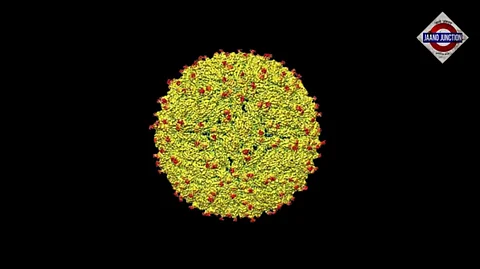

The Zika Virus, first identified in1947 in Uganda’s Zika Forest, belongs to the Flaviviridae family and the genus Flavivirus. While it shares many characteristics with its viral relatives like Dengue, Yellow Fever, and West Nile Virus, Zika has several distinct features that set it apart.
Transmission
One of the differences which makes it different from other viruses is its diverse mode of transmission. Like Dengue and Yellow Fever, Zika is primarily transmitted through the bite of infected Aedes Mosquitoes, but it stands out because of its ability to spread through sexual contact, from mother to foetus during pregnancy and also can be transmitted through blood transfusions and through other bodily fluids though this is less common route. Zika virus transmission profile makes it different and challenging to control as compared to the other Flavivirus, which typically rely solely on mosquito-borne transmission.
Symptoms
Zika presents very mild symptoms as compared to other flavivirus which makes it difficult to identify also as it is almost asymptomatic infection which makes Zika particularly dangerous, as infected unknowingly spread the virus.
Commonly Zika Virus presents different symptoms like mild fever, rash, joint pain etc, whereas Dengue can cause severe hemorrhagic fever, and West Nile may lead to neuroinvasive disease. Zika Virus mild symptoms reduces immediate health risks, but it complicates the detection and control efforts.
Neurological Complications
The most alarming aspect of the Zika Virus is its association with severe neurological complications, particularly in the foetus. Zika is the only known flavivirus to cause congenital abnormalities when contracted during pregnancy. As it has the ability to cross placenta barriers and directly affect foetal brain development.
Vaccine Development Challenge
Even Zika virus shares almost same protein identity like other flavivirus which is 55.6% amino acid in Zika Virus which is same as Dengue, 46.0% with Yellow Fever, 56.1% with Japanese Encephalitis, and 57.0% with West Nile as per National Library of Medicine report.
While vaccines exist for other flavivirus like Yellow Fever, Japanese Encephalitis, the unique characteristics of the Zika virus like its ability to cause severe foetal complications have posed significant challenge for the researchers and vaccine developers to develop the vaccine for Zika Virus as the vaccine must be safe for the use during the time of pregnancy which needs high bar for clinical trials and regulatory approval.
While Zika Virus shares many characteristics with its Flavivirus relatives in terms of genetic makeup, its unique features set it apart. From its diverse transmission modes and mild symptoms, potential neurological complications it can cause a significant health risk for humans. As it is also rapidly spreading in many new regions of the various countries like 3 pregnant women in Pune were test positive of Zika Virus. Which makes it crucial for researchers to develop effective prevention, control and treatment for Zika Virus.
